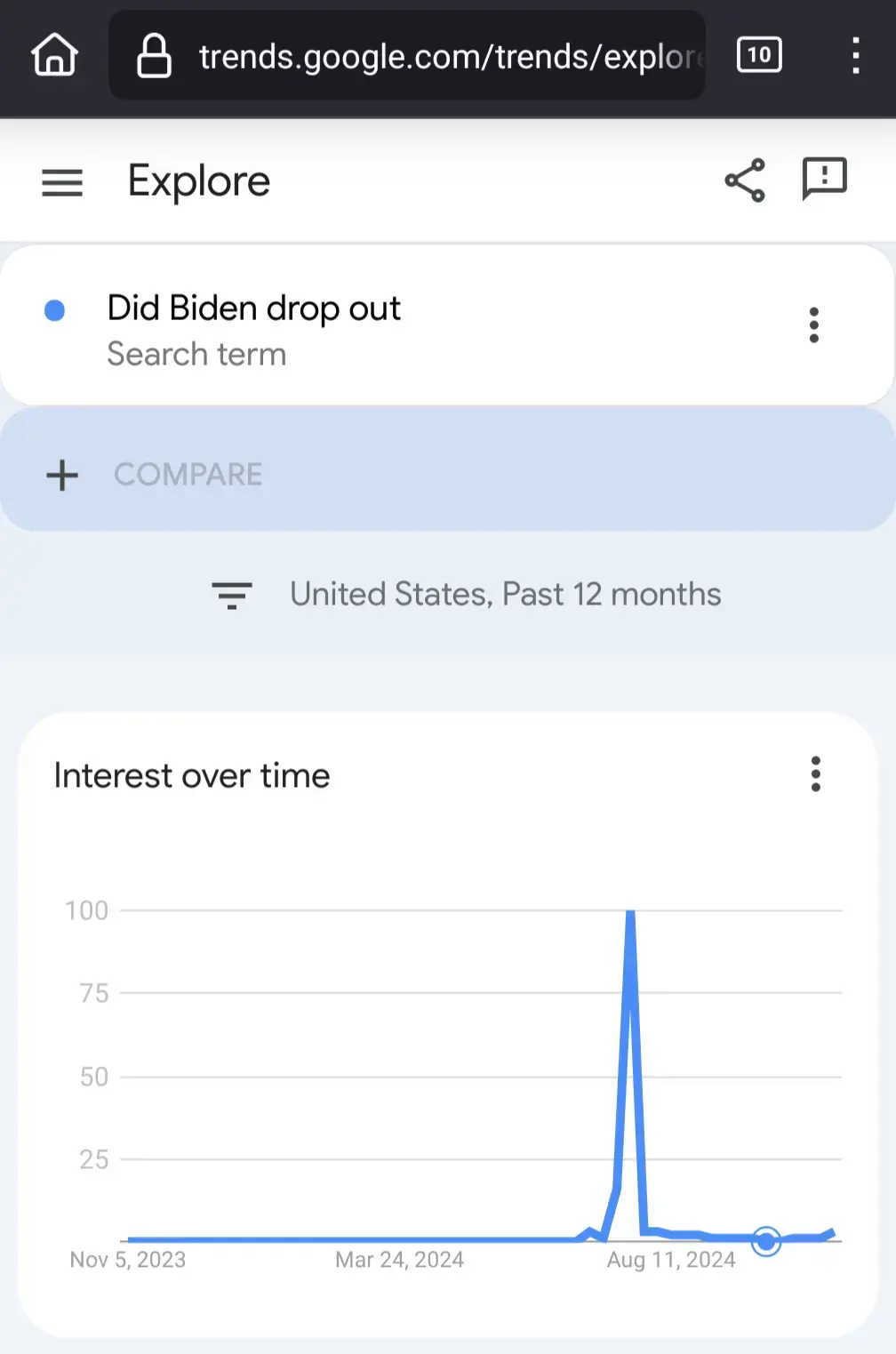Trends looks at searches for a keyword (or topic) compared to all searches performed (in that area) and then the data is normalized.
In short, Trends looks at “is it hot or not” (e.g., popularity of a term, NOT actual search volumes) and 100 is peak hot while 0 is peak cold. So that curve up today means it is starting to get hot when you compare to the rest of the data except that spike which is around when he dropped out. Narrow your view gap from 12 months to past 1 month and you’ll see a much different story.
Source: am former SEO and this shit was part of my daily job.
I’m pretty sure comparing this spike to the spike from when he actually did drop out is exactly what they intended to do. They’re showing that even though this spike exists relative to recent weeks, it’s small compared to the number of people who were relatively on the ball.
I understand the graph isn’t labeled but I’m pretty sure that’s a percentage. I.e. 10% of the peak when he actually dropped out was searching it today.
Overstated
That’s not how Trends works.
Trends looks at searches for a keyword (or topic) compared to all searches performed (in that area) and then the data is normalized.
In short, Trends looks at “is it hot or not” (e.g., popularity of a term, NOT actual search volumes) and 100 is peak hot while 0 is peak cold. So that curve up today means it is starting to get hot when you compare to the rest of the data except that spike which is around when he dropped out. Narrow your view gap from 12 months to past 1 month and you’ll see a much different story.
Source: am former SEO and this shit was part of my daily job.
Right it’s not nearly as popular now as when the story broke (by a lot), but it’s more popular now than it was a month ago. Meh.
For sure. In any case, people are really stupid. 😢
I’m pretty sure comparing this spike to the spike from when he actually did drop out is exactly what they intended to do. They’re showing that even though this spike exists relative to recent weeks, it’s small compared to the number of people who were relatively on the ball.
TEN WHOLE PEOPLE are curious about Biden on election day???
I understand the graph isn’t labeled but I’m pretty sure that’s a percentage. I.e. 10% of the peak when he actually dropped out was searching it today.